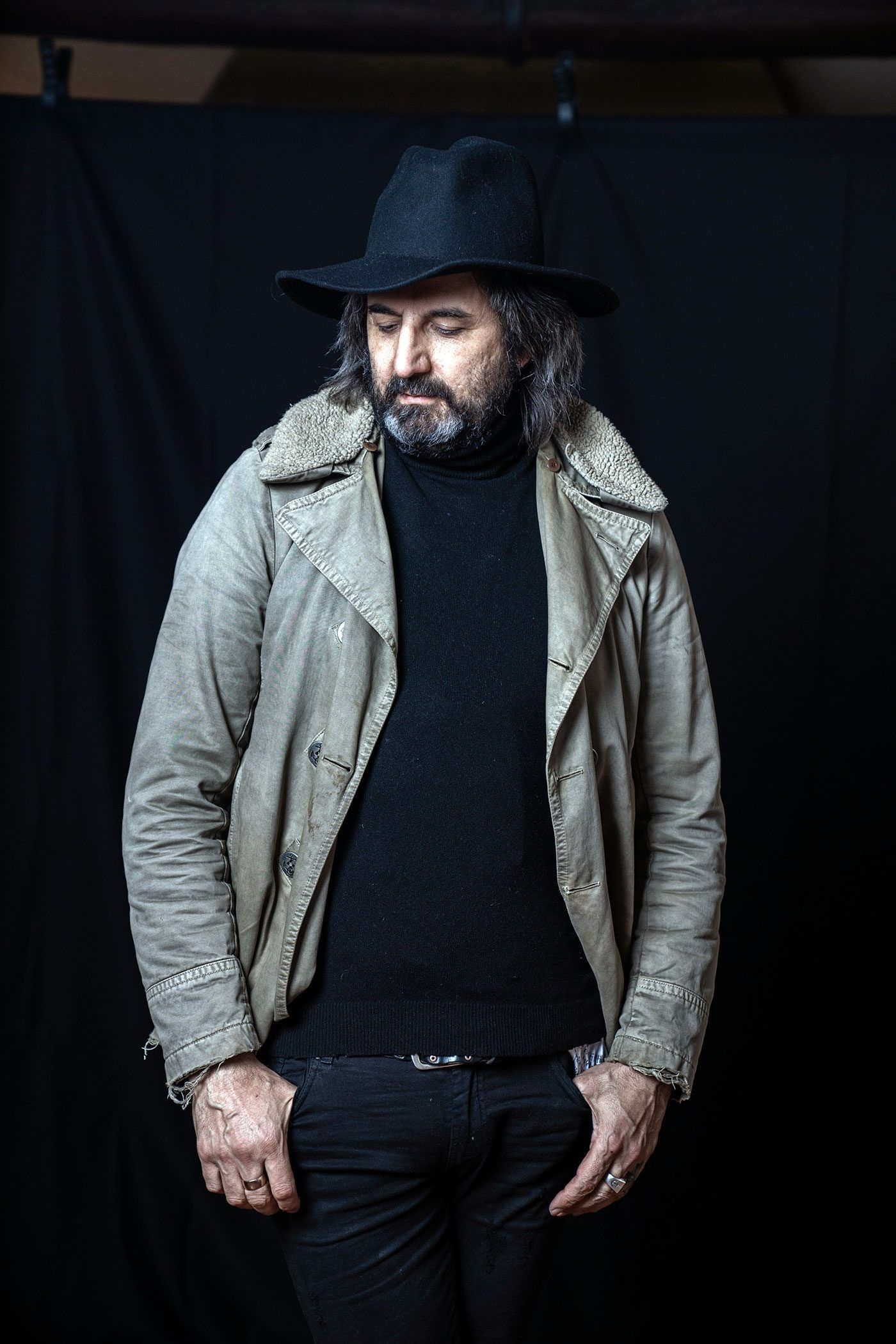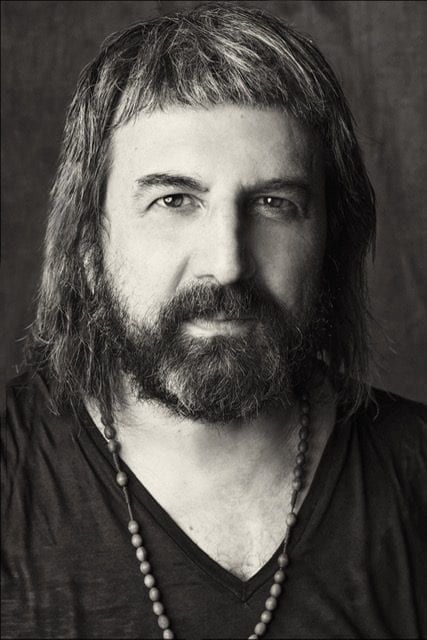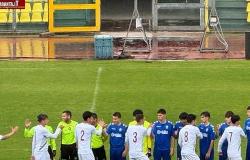“I’m saying this for the first time. I have another surgery in November. They told me that it should be the last stage of a long ordeal”, Omar Pedrini, historic singer of Timoria, tells Fanpage.it in an interview about his relationship with the cities of Milan (where he lives) and Brescia (where is born).
More than twenty albums, over three hundred songs, two thousand concerts, seven open heart operations, many lives. This, in a nutshell, is the artistic and human journey of Omar Pedrini, 57 years old, leader of Timoria for almost 20 years, then solo singer, poet, showman, author and TV presenter, transversal artist, actor and master’s teacher at university. In a long interview with Fanpage.it, the musician from Brescia talks about himself and his story, human and artistic, made of courage, choices against the trend, very difficult moments and a lot of Italian rock’n’roll.
You grew up in a family with a strong musical tradition. Road already marked?
I think it was just destiny. I come from a working class family. Lake Garda. Campione del Garda, a very small town. The 400 souls who lived there were all workers from the Olcese cotton mill in Milan. Olcese was an enlightened entrepreneur who said: “Whoever comes to work for me will have a house and a vegetable garden”. My great grandparents, grandparents, dad and mom, all working in the cotton mill. Father Pedrini was particularly brilliant in his studies. Olcese said: “We need to make him study.” He paid the scholarship and sent him to Riva del Garda, where the classical high school was.
An appeal has been lodged with the TAR against the new AC Milan stadium: “There are numerous aspects of illegitimacy”
Working family, I was saying. But here is the light that illuminates my path: my great-grandfather was a luthier: he made mandolins and taught music to the children of workers. His daughter Nina played the guitar. Her sister, the mandolin. Every Saturday and Sunday at their house there was my mother Daria who sang, her mother and her aunt on mandolins, her grandfather with the clarinet. Everyone brought something: a bottle of wine, a salami, the baker brought bread. It was a party every weekend.
At the age of 6 I was given my first guitar, made by my great-grandfather and I still remember the phrase that was said to me: “Omar, with music you will never be alone”. So, it really seemed like a fate already sealed. In turn I was enrolled in the classics in Brescia. I was rebellious and brilliant. I wanted to be a journalist. I had the band, but I thought of music as a hobby. I and the other Timoria were good and lucky. We win a competition between schools. They invite us to Milan to “Rock by Italy”. We win it. The manager of Polygram sees us and gives us the first contract. At 23 I was on the Sanremo stage. But I wanted to be a journalist, think…”.
In 1985 you formed Sigma SIX, then Timoria. Classical high school introduced you to Carlo Alberto Pellegrini (bassist), Enrico Ghedi (keyboardist) and Diego Galeri (drummer). Can we say: was the Arnaldo da Brescia classical high school a prisoner?
(Laughs) I think that’s exactly right.
In the 90s Timoria released several albums. What was the guiding star of your musical journey?
Two polar stars. The most important, the emotional one: rocking in the Italian language. It was the late 80s. I went to record companies. They told me “nice lyrics, nice song…But translate all the lyrics into English”. I was a classicist, I wanted everyone to understand what I sang. In ’91 we go to Sanremo with Italian rock and the song ‘The man who laughs’. We immediately get eliminated and think, “Maybe we really should have sung in English.”

Let’s go back to Brescia. My mother on the balcony of the house, she waves and screams continuously. I think and say: “Yes, mom, it went badly, don’t get involved too.” She says to me: “You have to go back to Sanremo. The journalists have been calling me since this morning. They gave you a prize. Go back to Sanremo”. The next morning the journalists’ assembly announced that it had decided, due to “the injustice suffered by the Timorias”, to establish the critics’ prize also for young people. Before it was only there for the big names. And it was ours.
Since then, every year I go and buy the album of someone who won the critics’ prize for young people. From there we took off. In ’93 the first gold record. The goal was to make it clear that Italians were also capable of rocking and the goal had been fully achieved. My artistic watchword, then, my second guiding star, was the contamination between the arts: the object of my teaching in Cattolica for 15 years. My course was ‘Where music meets other art forms’.
Parallel to his activity with Timoria, he began his career as a soloist. Were the Timorias too tight for you?
I made my first solo album, which then marked my exit from Timoria, because I wanted more and more to move towards songwriting. More importance to words and less aggressive music. This choice made the others turn up their noses. There was a bit of a rush. Renga had already left. We took a break, which became a definitive stop. Unfortunately, in 2004, I did Sanremo again, I won the prize for best lyric but a month later I fell and ended up in hospital, in a coma, and my ordeal began.

After the first operation for an aortic aneurysm, therefore, you discover that you have a heart that is at least capricious or, as you say, rogue. What did you think at that moment?
The first thing I thought, emotionally, was: “I hope I can still make my music.” My real fear was that I wouldn’t be able to sing anymore. Then, I thought about spirituality. Faith has kept me company in my life. Every now and then I meditate and believe that there is only one God. In my latest album there is an Ave Maria. I was called to the Vatican and was received by Pope Francis. I had the strength to tell him: “I don’t want anything. It’s yours. Make good use of it.”
In total you have undergone seven heart operations. The doctors, and you agree, said: one last tour and then stop. You added that you will be a farmer in Tuscany. How can you give up music?
I’m saying this for the first time. I have another surgery in November. They told me that it should be the last stage of a long ordeal (…he is moved, Ed.). But they also told me not to strain my heart too much. I will sing sitting down. Maybe at the theater. I like to say that I have married music but that my lover is theatre. I have done many theater tours. I love the liturgy of the theater. I would add that my father-in-law is a great heart surgeon. A fortune: he saved my life. Unlucky: constant recommendations and lectures.
All this made me think about returning to song theater. Then, however, the plan to become a farmer in Tuscany had already started. I have already started work on my estate that I have had since the 90s. I’m turning it into a B&B. If I were to revise my plans, however, it will become my only source of income. I would like to die in “my” Tuscany, growing old among my hills, my wine, my oil, with a recording studio where I can create my songs. Think about it, I have never given a song (I have published more than 300) to others. Maybe I would do it now, if I were involved and convinced.

How many times have you been afraid of dying?
I’ve never had it. I had the thought of dying during the Covid period, not because of the virus but because, as a heart patient, you couldn’t go to hospital. I waited a year before having the operation. They operate on me and the operation goes badly. There I thought about “leaving”. Every day, when I open my eyes, I am grateful to life and attention to the least is something that is within me. If they saved my life – I said to myself – it’s not just to be on stage, but it’s because I have to somehow give back the luck I’ve had. My fear was, really, that I wouldn’t be able to sing anymore. My voice never returned. She returned, feeble and sharp, after 12 days. There I understood that my death is living without music.
In the slalom between the various operations, you were unstoppable: full-blown albums, short films, recording projects aimed at charity initiatives, author and television presenter, food and wine programmes, musical testimonial for the nascent Rai 5. A reaction to that damned 2004, or more simply an explanation of your great artistic versatility?
It was the reaction to that damned 2004. I understood that time really does flee, like life escapes us and passes through our fingers. Hence, the need to express, quickly and well, everything I had inside. I haven’t had any free moments for a long time, because I’m afraid that one day they’ll tell me to stop. I want to complete all my projects.
You are an extremely sensitive artist. Where does this great sensitivity come from?
A bit from my DNA. Dad with his cultural loves. Mom, who was a hippie. I was born in the summer of 1967, “the summer of love”. Flowers were placed in the rifles of soldiers leaving for Vietnam. I think the world at that time had this positive cosmic energy. Two months before I was born, that sensitive soul Luigi Tenco killed himself. He couldn’t stand show business. A bit like me. Well, I really believe that my sensitivity was born from all this.
A few steps back: 1998. Francesco Renga leaves Timoria. It is said due to probable tensions with Omar Pedrini he has become increasingly leader. In 2011, you duets with Renga at the Creberg theater in Bergamo. The event marks the reunification between you and Francesco. Correct reconstructions?
Absolutely not. In Bergamo, a stone was put to rest after the dispute that occurred 13 years earlier, over an important women’s issue. And it was an incredible feeling. The hatchet was buried, even if we never did anything together again afterward. Something was broken and the friendship never blossomed again.

Two cities, Brescia and Milan. What is Omar Pedrini’s relationship with these two cities?
The relationship with Milan is wonderful because it gave me everything that Brescia denied me. Even today, I don’t sing in Brescia. Half of Brescia loves me, half hates me. Milan, on the other hand, loves me and has always understood me. I feel understood. However, I am a big Brescia fan and a big fan of the Curva Nord.
Can you already do a summary of Omar Pedrini, artist and man?
I don’t want to draw conclusions if it brings bad luck. I married Veronica, daughter of a heart surgeon, lawyer, 20 years difference between me and her, with whom I had two children. Profoundly different, she and I. Everyone said, “What do you find in each other?”
Maybe we love each other precisely because we are so different. If I were to sum it up, I would say the phrase from the song written and dedicated to her, Veronica: ‘Some high among the low’. This is my life. I am loved by the press, which has always pampered me. When I come out with my records, I always get good articles in the newspapers. I manage to do my 60-70-80 concerts a year. My books, my programs… above all I am free. I say what I think.
Tags: illness eighth operation Milan loves Brescia dont sing










